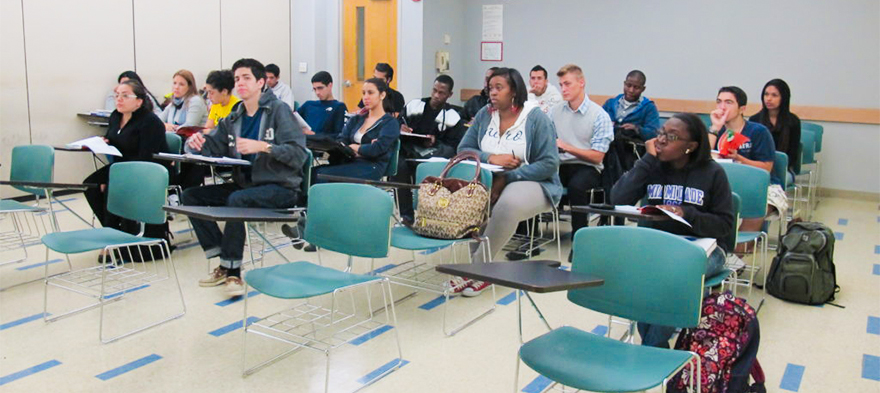
Oct 4, 2016 12:00:00 AM
In 2013, Florida legislators sought a way to help students save money and encourage them to stay in college. Developmental education courses, which are not credit bearing and don’t count toward a degree, would no longer be mandated for traditional high school graduates who don’t score well on the state’s standard placement tests. And the placement test that would determine whether a student should enter a developmental education course was no longer mandatory, either.Guess who wasn’t exempt from the tests and courses? Adults and non-traditional students—not because these students are more likely to persevere despite the setback of remediation, but because the struggle of those students can’t easily be blamed on the high schools that just handed them a diploma. (Of course Florida takes great pride in its rising high school graduation rate, which has increased almost 20 percentage points in the past 11 years).
“This isn’t rocket science. If students don’t have the skills to complete a college course and you let them take the course, there’s a likelihood they’ll fail the course. What did they expect? All along this legislation was questioned by experts in the field.” The law, in essence, left the decision up to students to figure out if they were college ready, or not. Yet students often aren’t sophisticated about the level of rigor in college courses, even in a remedial or developmental course. …Researchers at Florida State University’s Center for Postsecondary Success have been studying the effects of the legislation and found results across the state similar to St. Petersburg and Miami-Dade. Students are reluctant to enroll in developmental education courses even when advised to do so.This misguided law is still on the books, which means the state’s remedial rates will stay artificially low for the coming years. There is some hope that the state’s higher standards will help close the yawning gap and better prepare high school graduates for college. The state adopted the Common Core State Standards in 2010, and later renamed them the “Florida Standards” after the Common Core label proved unpopular with voters, but left the standards as written largely intact. In the meantime, the responsibility for fixing this problem has fallen on Florida colleges, which have been forced to rethink how they teach remedial courses and how to urge unprepared students that passing a remedial class makes a lot more sense than flunking a regular college course. As another college director observed:
It’s like their heads are in the sand.
Tracy Dell’Angela is a writer, education nonprofit executive director and a mom passionate about education improvements. Previously, Tracy was Director of Outreach and Communications for the Institute of Education Sciences (IES) at the U.S. Department of Education in Washington, D.C. She came to IES from the University of Chicago Consortium on Chicago School Research, which produces research that drives improvement in Chicago and nationwide. She also served as Senior Project Director for 100Kin10 at the University of Chicago and was Director of Program Investments and Partnerships for the Chicago Public Education Fund. Tracy spent most of her career as an award-winning newspaper journalist, including 12 years at the Chicago Tribune as an education reporter covering national policy and the Chicago Public Schools. A Californian by birth but a Chicagoan in spirit, Tracy attended University of Chicago as a master's student in social sciences and earned a B.A. in journalism and political science from San Diego State University.
Few issues in education spark more tension and debate than standardized testing. Are they a tool for equity or a burden on students? A necessary check on school systems or a flawed measure of...
Charter schools are public schools with a purpose. Operating independently from traditional school districts, they're tuition-free, open to all students, and publicly funded—but with more flexibility...
Despite the benefits of a diverse teaching force, prospective teachers of color fall out of our leaky preparation pipeline at every stage: preparation, hiring, induction, and retention. Here’s what...
Ed Post is the flagship website platform of brightbeam, a 501(c3) network of education activists and influencers demanding a better education and a brighter future for every child.
© 2020-2025 brightbeam. All rights reserved.
Leave a Comment